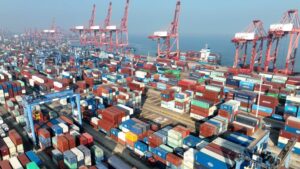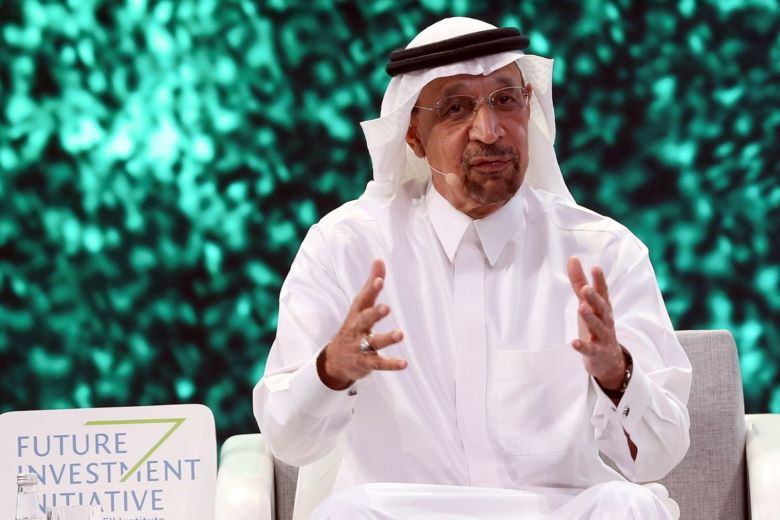Anamika Dey, editor
Brief news
- Donald Trump’s election victory signals a historic political revival, with potential global economic repercussions due to his proposed policies on deregulation, tax cuts, and tariffs.
- Analysts predict significant impacts on trade and financial markets, particularly concerning tariffs on China and the EU.
- Trump’s administration may face challenges in implementing extreme policies, while Asia, especially China, is better prepared than in 2016.
Detailed news
Donald Trump’s election victory over Vice President Kamala Harris represents a historic return to the White House, an unprecedented political revival that is expected to have seismic consequences for the global economy.
In an address to his supporters in Florida on Wednesday morning, Trump declared that a “unprecedented and powerful mandate” would inaugurate “the golden age of America.”
The former president’s campaign promises have been extensive, encompassing deregulation, tax cuts, sharp tariffs, and a drive to withdraw from critical global agreements.
According to analysts, it is challenging to determine the extent to which Trump will attempt to implement these measures during his second four-year term; however, the repercussions of any such actions will be evident worldwide.
According to Lizzy Galbraith, a political economist at asset manager Abrdn, the precise nature of the presidency that investors can anticipate upon Trump’s return to the White House is yet to be determined.
On Thursday, Galbraith stated on “Squawk Box Europe” on CNBC that Congress has a significant role to play in this matter.
“If Trump is able to achieve unified control of Congress, which is highly probable and is what we anticipate in the coming weeks and days, he will have the ability to implement his tax-cutting and deregulatory agendas with greater flexibility. However, it is also probable that elements of his trade policy will be present in this context.”
Galbraith stated that there are presently two schools of thought regarding tariffs. Either Trump intends to employ them as a bargaining chip to secure concessions from other parties, or he fulfills his commitment and implements them on a much broader scale.
The word that Trump favors
Trump has previously referred to “tariff” as his preferred term, stating that it is “the most beautiful word in the dictionary.”
Trump has proposed the imposition of a 20% tariff on all commodities imported into the United States in an effort to increase revenues. Chinese products would be subject to a tariff of up to 60%, while vehicles manufactured in Mexico would be subject to a tariff of up to 2,000%.
In contrast, Trump has declared that the European Union, which comprises 27 nations, will incur substantial penalties for failing to purchase an adequate quantity of American exports.
“I believe it is important to emphasize that we believe that Trump’s primary focus will be on China in any situation in which he employs tariffs frequently.” And we do not consider Trump’s secondary tariff pledge, which is a baseline tariff that would be detrimental to European companies, to be particularly practicable,” Galbraith stated.
“Therefore, it is not necessarily our base case that you observe a baseline tariff that would significantly impact European goods, although there is still a distinct possibility that specific European products could be impacted,” she continued.
Analysts have cautioned that Trump’s proposal to implement universal tariffs is highly probable to result in increased consumer prices and a reduction in spending.
Europe
“The direct impact of Trump 2.0 on economic growth is likely to be limited in the near term,” stated Ben May, director of global macro research at Oxford Economics. “However, it conceals significant implications for financial markets, trade, and the composition of growth.”
For example, May stated that the global impact would be “very significant” if the more radical aspects of Trump’s policy agenda were implemented, particularly with regard to tariffs.
May stated in a research note that “a critical unknown is whether a clean sweep increases the likelihood that a Trump administration will implement more extreme policy measures, such as tariffs that are larger and less targeted.”
“The risk of increased instability in both regions is also exacerbated by the uncertainty surrounding Trump’s stance on the conflicts in the Middle East and Ukraine, which could have a significant impact on regional and global growth,” he continued.
Europe and the European Union as a whole had long been perceived as adversely affected by the possibility of a second Trump presidency.
However, in a research note released on Wednesday, analysts at Signum Global Advisors asserted that “the extent of that truth continues to be undervalued.”
In fact, they contended that the EU is likely to be “the biggest loser of a second Trump era” due to a variety of factors, including ongoing frustration with key European policy decisions, trade tensions, and Trump’s likely intention to capitalize on America’s competitive advantage in attracting capital relocation.
Asia
Macquarie Group analysts stated on Thursday that while Trump’s election victory is “bad news for Asia,” particularly China, the region is “more prepared” than it was in 2016, when he first assumed the presidency.
“Trump’s campaign was characterized by his advocacy for increased tariffs.” In a research note, an analyst at Macquarie Group stated that the headwinds that are anticipated to spread across Asia, particularly China, should elevate volatility and compress multiples as uncertainty prevails, despite the fact that they were well-predicted.
“A counterbalance to this is a probable increase in stimulus measures in China,” they concluded. “The Chinese government has already delineated its objectives to address the property market’s troubles and promote economic growth at a rate of 5% in order to bolster domestic consumer confidence.”
According to Mitchell Reiss, a distinguished fellow at the Royal United Services Institute (RUSI) think tank and an American diplomat, there are likely to be some variations to the Trump playbook this time around.
On Thursday, Reiss stated on CNBC’s “Squawk Box Europe” that “I believe President-elect Trump has expressed his desire to raise tariffs on China once more until the playing field is level.”
“The number of China hawks who served in Trump’s administration was particularly intriguing during his previous victory.” He continued, “This administration was extremely rigid in terms of personnel and their perception of China as an adversary, expansionist in the South China Sea, and in opposition to American values and its friends and allies worldwide.”
“Consequently, I do not anticipate that this will alter.” I believe that the economic interaction we have with China may partially alleviate this issue; however, I anticipate that the relationship will remain complex in the future.
Source : CNBC news




